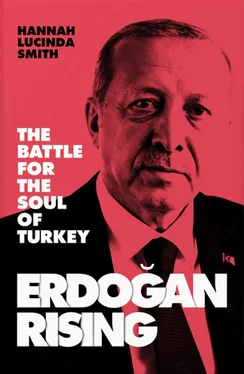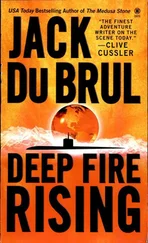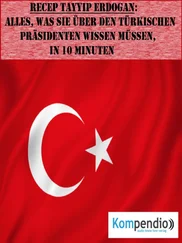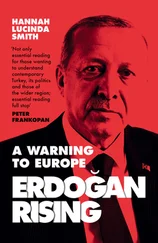Erdoğan entered the building as scheduled, accompanied by his wife and son-in-law, the then-energy minister Berat Albayrak, who most believe he is priming as heir. Tubs of red carnations had been strategically placed around the edges of the stands and Erdoğan threw them out to his adoring crowd as he did a victory lap. The grey men on the stage must have felt rather outshone as they reeled through their dry lists of candidates for various posts within the party. For top job Erdoğan was standing uncontested, and that was the only item on the agenda that really mattered.
Turkey is different from the other countries falling under the sway of strongmen. It boasts not one, but two – perhaps even three or four – coexisting personality cults.
There is Erdoğan’s, a cult in the ascendant I have seen evolve before my eyes. There is the cult of Abdullah Öcalan, the grandfatherly-cum-psychopathic leader of the PKK ( Partiya Karkerên Kurdistanê , the Kurdistan Workers’ Party – the Kurdish militia fighting against the state in eastern Turkey), who has been banged up in an island prison since 1999, yet still commands a huge following among the Kurds and their diaspora. As well as the Turkish PKK there are affiliated militias fighting in his name in Syria, Iraq and Iran. His appeal stretches to Western leftists who are so enchanted by his ideas on women’s equality and government without the state that they are willing to overlook the atrocities that his gunmen and women commit. As the latest peace process broke down in the summer of 2015, I went to interview Öcalan’s brother in the south-eastern mountains of Turkey, having been told I would find him an intelligent, sensible kind of guy who would give me an honest account of his notorious sibling. Mehmet Öcalan’s home-grown figs were delicious, but the interview quickly veered into the bizarre. He tried to convince me that his brother knew, and by extension controlled, exactly what was going on in the Middle East day by day from his solitary prison cell, thanks to his psychic powers. Throughout, he referred to him as ‘Serok’ (Kurdish for ‘leader’) – never Abdullah or ‘my brother’.
There was, and perhaps still is, the cult of Fethullah Gülen, a wizened Islamic cleric who has been commanding a network of secretive followers since the 1960s. He has been living in exile on a secluded and heavily guarded ranch in Pennsylvania, USA since the 1990s, but until recently his devotees occupied high ranks within the Turkish bureaucracy, police and judiciary. They used their positions to bully and punish anyone who opposed them, most notably secularists who were uneasy with the idea of a secret Islamic cult wielding so much power in their country. Erdoğan and Gülen were allies, of sorts, until they fell out spectacularly in 2013 and began a personal war played out through the state. Erdoğan accuses Gülen of organising the attempted coup of 2016. At present, a Turk’s life can be ruined by the mere suggestion that they have at any time and in any way been affiliated with the movement.
And then there is the cult of Mustafa Kemal Atatürk, founder of the Turkish republic and possibly the only man capable of raising a serious challenge to Erdoğan despite the fact that he has been dead for eighty-one years. Atatürk – or at least the Atatürk who is still very much alive in the imagination of today’s Turks – stood for almost everything Erdoğan despises, and vice versa. He was an unbending advocate for secularism, non-aggression in dealings with other states, and a Turkey that is allied to Europe and the West.
Atatürk has always been a Turkish hero, but increasingly he is also the figure Erdoğan’s opponents rally around. During the 2017 constitutional referendum campaign the streets of my Istanbul neighbourhood – a secular bastion that voted 81 per cent against Erdoğan’s plans to gather power in his own hands – turned into an open-air gallery of Atatürk-inspired artwork. The ‘İzmir March’, an anthem to militarism and Mustafa Kemal, was the unofficial theme tune of the ‘No’ campaign. It is common, both inside Turkey and without, to hear Erdoğan’s detractors bemoan how he is unravelling Atatürk’s legacy.
Maybe it said more about the state of the opposition than it ever did about the enduring strength of Atatürk. There is no question that this cult continues, but its cracks are beginning to show. Over the course of Erdoğan’s reign, those who have in the past quietly loathed Atatürk and all he stands for have found they can finally speak out. They are primarily the religious poor, dispossessed by Atatürk’s unbending secularism, though they also include liberals who wince at the thought of unbridled adoration in any direction. But those same liberals who once supported the downgrading of Atatürk’s legacy are now recoiling at Erdoğan’s transformation from man to deity by his followers. And so, Turkey has become a fascinating Petri dish – a perfect place to observe one cult of personality in the ascendant, alongside another in slow decline.
Over six years I have travelled to every corner of this huge, diverse, often baffling and always fascinating country, and have also reported on the chaos it borders in Iraq, Syria and south-eastern Europe. Along the way I have spoken to politicians, criminals, policemen, taxi drivers, warlords, flag-sellers, refugees … My notebooks are so stuffed with characters that the material could keep me writing for years. In Erdoğan, I have found the most compelling protagonist a writer could wish for.
But it wasn’t the coup attempt that spurred me to write this book, despite all its Hollywood drama and the front pages it garnered. That night in July 2016 was just the prologue, the scene-setter for the real tragedy that then unfolded. I started writing this book a year on, after the grandiose celebrations held on the first anniversary of the coup attempt revealed fully the depth of the personality cult that Erdoğan had assembled. By the time I had finished the first manuscript eleven months later, he had sealed power through the presidential elections that will keep him in his palace until 2023 – two decades at the top of Turkey.
This story is bookended by those two events, but at its core is the entire period in which I have taken a front-row seat at Turkey’s descent. When I arrived here in early 2013, thinking that I would stay for a few weeks to report on Syria before going back to my life in London, Erdoğan was just tipping over from being a flawed but largely tolerated democrat to a relentless autocratic populist. Within two years he had turned into a hate figure that the whole world had heard of – and then he led his country into its most turbulent era in decades. In the space of eighteen months in 2015 and 2016, Turkey suffered a refugee crisis, a wave of terror attacks, a fresh eruption of violence in its Kurdish region, and a coup attempt. Since then, even with some kind of daily stability and normality restored for most Turks, Erdoğan has consolidated his position further and stamped down harder on his opposition.
Spotting the narrative’s threads has not been easy: his path has not always been steady or clear. Multiple plot lines unfold simultaneously, linears converge and loop back on themselves. Events outside Turkey wash over its borders, feeding forces that are brewing inside the country while Erdoğan holds up his own skewed version of the world to his people like a fun-fair mirror. I worked forwards and backwards through shelves of my notebooks from Turkey and Syria as I wrote, trying to work out what I’d witnessed. I reread old diaries and rang up old friends, trawled through newspaper cuttings from the past twenty-five years and plundered the historical archives at The Times . I spoke to historians and political scientists and drew up huge lists of diplomats, Erdoğan’s insiders, lobbyists, advisers and opponents and contacted them all, asking them to speak either on the record or privately. Most of them ignored me, some of them refused. The ones that agreed usually did so on condition of anonymity, and each has shaded their own part of this portrait of Erdoğan and Turkey. Some names have been changed, usually in order to protect people who are still inside Syria or who have families there. In other cases I have referred to interviewees by first names only, or by the position they held. It is a mark of the current state of the country that I cannot thank or acknowledge by name most of the people who have helped me write this book; in the future, in better times, I hope I will be able to do so.
Читать дальше












